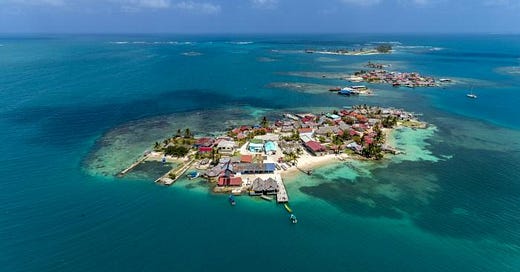Nearly sixty nations are organized, under the auspices of the United Nations, as Small Island Developing States. Their territories include more than a thousand islands in the Pacific Ocean, the Caribbean Sea, the Atlantic Ocean, the Indian Ocean, and the South China Sea, in which live some 65 million persons.
The group of Small Island Developing States is formed by thirty-seven nations that are member states of the United Nations, including sixteen from the Caribbean (Antigua and Barbuda, Bahamas, Barbados, Belize, Cuba, Dominica, Dominican Republic, Grenada, Guyana, Haiti, Jamaica, Saint Kitts and Nevis, Saint Lucia, Saint Vincent and the Grenadines, Suriname, and Trinidad and Tobago); thirteen from the Pacific (Fiji, Kiribati, Marshall Islands, Micronesia, Nauru, Palau, Papua New Guinea, Samoa, Solomon Islands, Timor-Leste, Tonga, Tuvalu, and Vanuatu); and eight from the Atlantic Ocean, the Indian Ocean, and the South China Sea (Cabo Verde, Comoros, Guinea-B…



